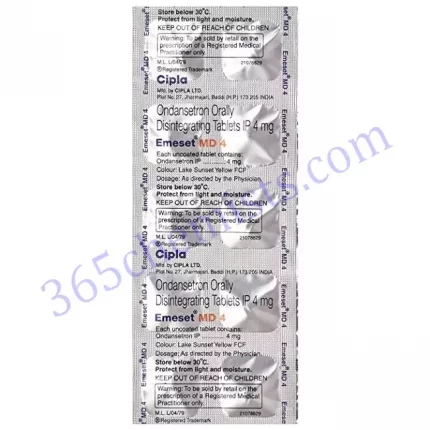Betavert 48mg Tablet (Betahistine): A Comprehensive Overview
The drug Betavert 48mg Tablet, which contains the active ingredient betahistine, is a member of the histamine analogues drug class. The inner ear disorder Meniere’s disease, which causes vertigo, tinnitus (ear ringing), and hearing loss, is the main condition for which it is used as a treatment. This in-depth summary aims to give useful details about Betavert 48mg Tablet, including its uses, dosage, warnings, and possible side effects.
Uses of Betavert 48mg Tablet
Meniere’s Disease: Betavert 48mg Tablet is used to treat the vertigo (spinning sensation), tinnitus, and hearing loss brought on by Meniere’s disease. It functions by increasing blood flow to the inner ear and decreasing pressure buildup, which lessens the intensity and frequency of vertigo attacks.
Dosage and Administration
Orally, two to three times daily with meals, Betavert 48mg Tablet is taken. Depending on the severity of the symptoms and how each patient responds, the dosage may change. It’s crucial to adhere to your healthcare provider’s or a product’s label’s instructions. Without consulting a doctor, never take more medication than is advised or change the way it is to be administered.
Precautions and Considerations
It is crucial to take the following safety measures into account before using Betavert 48mg Tablet:
- A known allergy to betahistine or any of the other ingredients in the Betavert 48mg Tablet should prevent you from using it. From minor skin irritation to more serious reactions, allergic reactions can range. Use should be stopped right away if you exhibit any symptoms of an allergic reaction, including rash, itching, swelling, or trouble breathing.
- Peptic Ulcer: People who have had a peptic ulcer in the past or who are currently experiencing a gastric ulcer should use Betavert 48mg Tablet with caution. To ensure the safe and effective use of the medication, it is crucial to let your healthcare provider know if you have any gastrointestinal conditions that need to be treated beforehand.
- When taking Betavert 48mg Tablets, people with a history of asthma should proceed with caution. To identify any potential worsening of asthma symptoms, close monitoring is required.
- Breastfeeding: It is unknown whether taking Betavert 48mg Tablets while nursing or pregnant is safe. Before using this medication, go over the potential risks and benefits with your doctor if you are pregnant, trying to get pregnant, or nursing a baby.
Related Product
Betavert 8 mg Tablet
Betavert 16 mg Tablet
Betavert 24 mg Tablet
Betavert 48 mg Tablet
Potential Side Effects
Although Betavert 48mg Tablet is typically tolerated well, it could result in some side effects. Headache, dizziness, gastrointestinal issues (such as nausea, vomiting, and abdominal pain), and skin rashes are examples of common side effects. Usually transient, these side effects disappear on their own. It is important to let your doctor know if any side effects linger or start to bother you.
Allergies, an elevated heart rate, and changes in blood pressure are less frequent but potentially dangerous side effects. If you experience any severe or lingering side effects, it’s important to see a doctor.
Additional Information
In addition, bear the following in mind when using Betavert 48mg Tablet:
- Treatment Duration: The length of time spent taking Betavert 48mg Tablets will depend on each patient’s response and the severity of their Meniere’s disease. The ideal treatment duration will be decided by your healthcare provider. It’s crucial to stick to the recommended course of treatment and not stop taking the medication without first talking to your doctor.
- Driving and Operating Equipment: Betavert 48mg Tablet may make some people feel groggy or sleepy. Avoid tasks that call for alertness, such as operating machinery or driving, if you experience these side effects until you have a better understanding of how the medication affects you.
- Alcohol Interaction: It is advised to stay away from alcohol while taking Betavert 48mg Tablet as it may intensify the sedative effects of the medication and raise the risk of feeling lightheaded or sleepy.
- Meniere’s disease is a chronic condition that needs ongoing management, so regular auditory and vestibular evaluations are important. To track the development of the condition and the efficacy of treatment, regular auditory and vestibular evaluations, including hearing tests and balance assessments, are crucial.
- Other Medications: Be sure to let your doctor know about all of your current medications, including any over-the-counter medicines and dietary supplements. Betavert 48mg Tablet may interact with some drugs, including sedatives and antihistamines. The potential interactions can be evaluated by your healthcare provider, who can then modify your treatment strategy as needed.
- Lifestyle Changes: In addition to medication, some lifestyle changes can aid in the management of Meniere’s disease symptoms. Maintaining a low-salt diet, staying away from stressors like caffeine or nicotine, controlling stress levels, and using relaxation techniques are a few examples. Talk about these techniques with your healthcare provider to get recommendations that are unique to you.
Conclusion
An essential drug used to treat Meniere’s disease is Betavert 48mg Tablet (Betahistine). It eases symptoms like vertigo, tinnitus, and hearing loss by increasing blood flow and lowering pressure buildup in the inner ear. For safe and efficient use of Betavert 48mg Tablet, it’s crucial to stick to the recommended dosage, take the necessary precautions, and pay attention to your reaction. If you have any questions or concerns about using Betavert 48mg Tablet, speak with your doctor for specific advice and direction. Maintaining regular contact and follow-up with your doctor during the course of your treatment will help to ensure the best possible results in managing your Meniere’s disease.











